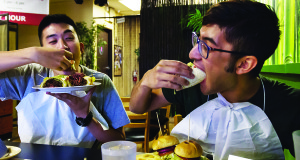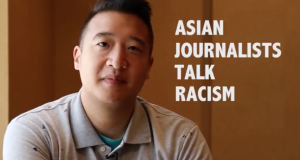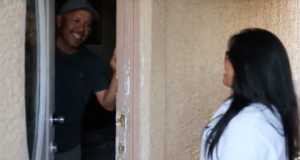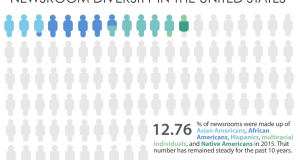White. Ethnic. Asian. Multiracial. Hispanic. Mixed.
These words are used to describe a person’s physical traits and are intended to associate them with a particular race, culture, ethnic group or region of the world. But they are not concrete.
These naming conventions have been contested by the public, anthropologists, sociologists and politicians for decades. The terms are institutionalized. It isn’t surprising that they are still soaked in ambiguity.
Still, they are inaccurate or politically incorrect ways of classifying people.
“Where are you from?”
“No, where are you really from?”
“Where are your parents from?”
“What are you?”
I am familiar with these questions because I’m asked them with unwavering frequency.
No matter where I am in the world, people are interested in knowing why my skin is tan and my hair curly — often after confidently offering their own explanation.
But what about my own explanation? Regardless of the place, person or their intent, I try to answer the questions diplomatically.
I was recently asked whether I was “a minority” in a manner and tone that suggested the right answer to the question was “no.” The question elicited a reluctant response through gritted teeth.
My answer was less-than-tactful because I don’t believe another person can judge how I identify myself. I don’t think I can be defined by one box on a U.S. Census questionnaire, a survey on which the racial categories change each time it is issued.
Because here’s what I am: the daughter of an immigrant from the Solomon Islands and a Caucasian from rural Wisconsin with European ancestry. I am an American who was taken out of kindergarten at the age of 5 to live abroad in one of the poorest regions of the South Pacific. I am a woman who considers the time I spent in villages with thatched huts, learned to speak the local languages and developed inklings of my passion for journalism and global equality the most formative and vivid part of my childhood. I grew profoundly from that experience. I grew around it.
Today, I still speak the languages. I live my life by the values of my relatives in the islands. I think of how they live every day.
I fully accept and embrace the other parts of myself as well. I celebrate Thanksgiving and the Fourth of July. I put my hand over heart when I say the Pledge of Allegiance. I revere the founding fathers and the rights granted to me by the Constitution. I spent years riding around in a Ford truck. I eat apple pie. I watch football.
I’m not rejecting those experiences in any way, but they do not completely define me.
To me, a better, more conscientious question to determine a person’s heritage is a seemingly flippant one: What are your ingredients?
You decide what makes you up, and in what amounts, from your experiences. There are technicalities and biological values, but they might not be representative of how you feel about who you are. Others cannot decide which classifications you fall into by looking at you, listening to you, or learning where you grew up.
I am a minority, but only I can decide that.
 VOICES Publishing from the AAJA National Convention
VOICES Publishing from the AAJA National Convention







